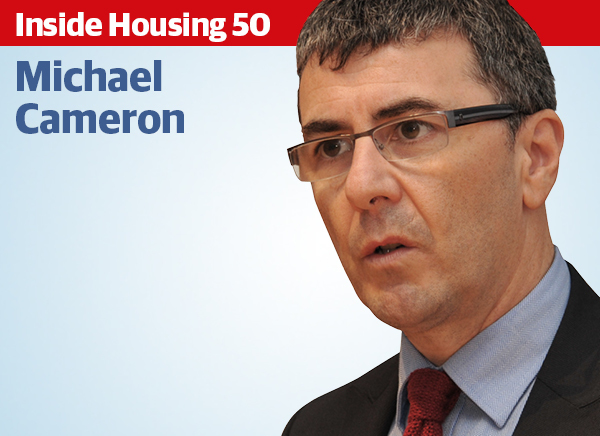You are viewing 1 of your 1 free articles

Balancing the interests of different stakeholders
As Community Housing Cymru prepares to consult on its new code of governance, Stuart Ropke asks how housing associations measure value
KISS (Keep It Simple, Stupid) is a design principle first deployed by the US Navy in the 1960s but beloved by management consultants today.
It is still relevant when thinking about how we structure and define the purpose of organisations and the importance of striving for simplicity.
The demise of Carillion has once again turned the focus on organisational complexity, and the failure of corporate governance.
“One of the biggest misnomers about the responsibility of boards in the for-profit sector is that their primary responsibility is to maximise shareholder value.”
A board packed full of business luminaries failed to prevent the collapse of an organisation that had a central role in running many public services and was at the heart of delivering many crucial infrastructure projects.
Others have already written eloquently on the lessons that housing associations can learn from Carillion.
However, as we at Community Housing Cymru (CHC) prepare to publish the consultation on our new Code of Governance, it’s raised a few questions for me about whether we’ve truly nailed the expectations we should have for boards of housing associations across Wales.
One of the biggest misnomers about the responsibility of boards in the for-profit sector is that their primary responsibility is to maximise shareholder value, normally seen through the prism of a rising share price and increasing dividends for investors.
It is true that, under the 2006 Companies Act, the directors have a responsibility to promote the success of the business for its members (the shareholders).
However, they must also have regard to six other factors that include the long-term consequences of their decisions: the interests of employees, relationships with suppliers and customers, the impact of corporate activities on the community and environment, the company’s reputation for high standards of business conduct, and the need for fairness between different members of the company.
“How do we define and agree what value is when it isn’t financial return in absolute terms?”
Applied to not-for-profit housing associations, I would argue that shareholders are replaced by a wider range of stakeholders.
These include customers and service users, both current and future; our partners in local and central government; employees; suppliers and investors; and, of course, the wider communities in which housing associations operate and invest resources.
So how good are housing association boards at defining who their hinterland of stakeholders is? How do we define and agree what value is when it isn’t financial return in absolute terms? Are we effectively balancing the interests of our stakeholders?
A proxy for decisions like this where the rubber really hits the road, the current discussion about rents and affordability is relevant.
It is a classic trade-off which attempts to balance the interests of a range of stakeholders and the challenge of defining and maximising value. And, of course, it is a decision that has significant long-term consequences.
The work to revamp our Code of Governance has coincided with the Regulatory Board for Wales’ (RBW) review of governance of the housing association sector.
When the regulator in Wales last took a detailed view of governance in 2013, it took the view that some housing association boards needed to work on putting some basic processes and structures in place to drive their governance.
“The regulator is clear that the governance of housing associations is much improved.”
This included maximum term lengths for board members and ways to measure the effectiveness of boards and board members.
When CHC published its first Code of Governance in 2014, it focused on process.
It included a checklist of requirements which boards had to demonstrate they complied with and, if not, to explain why.
Four years on, the regulator is clear that the governance of housing associations is much improved and that gives us the space to take a different approach.
The seven principles underpinning the new CHC Code of Governance
- Organisational purpose
- Leadership
- Integrity
- Decision-making, risk and control
- Board effectiveness
- Diversity
- Openness and transparency
The new code that we are launching for consultation at our Governance Conference on 8-9 March is based on seven foundation principles for good governance.
The seven principles – organisational purpose; leadership; integrity; decision-making, risk and control; board effectiveness; diversity; and openness and transparency – and their rationale are explained within the document and housing associations are expected to adopt them.
There is, however, no checklist to tick through. It is for the board to determine how they demonstrate that they meet each of the principles.
“I would argue that openness and transparency is particularly crucial.”
The aim is that discussions of good governance will move from process to culture and practice.
While all the principles are important, I would argue that the openness and transparency principle is particularly crucial.
If we accept that housing associations have a diverse range of stakeholders, it is vital that the sector provides better visibility on how the board and organisation operates and functions.
If we are to build and grow confidence in housing associations as organisations, and the wider sector as a key institution in growing and regenerating the Welsh economy, we need to develop a better understanding of what we do and how we do it.
A good start would be to make the board effectiveness reviews that many organisations already undertake more consistent, visible and transparent.
Stuart Ropke, chief executive, CHC











